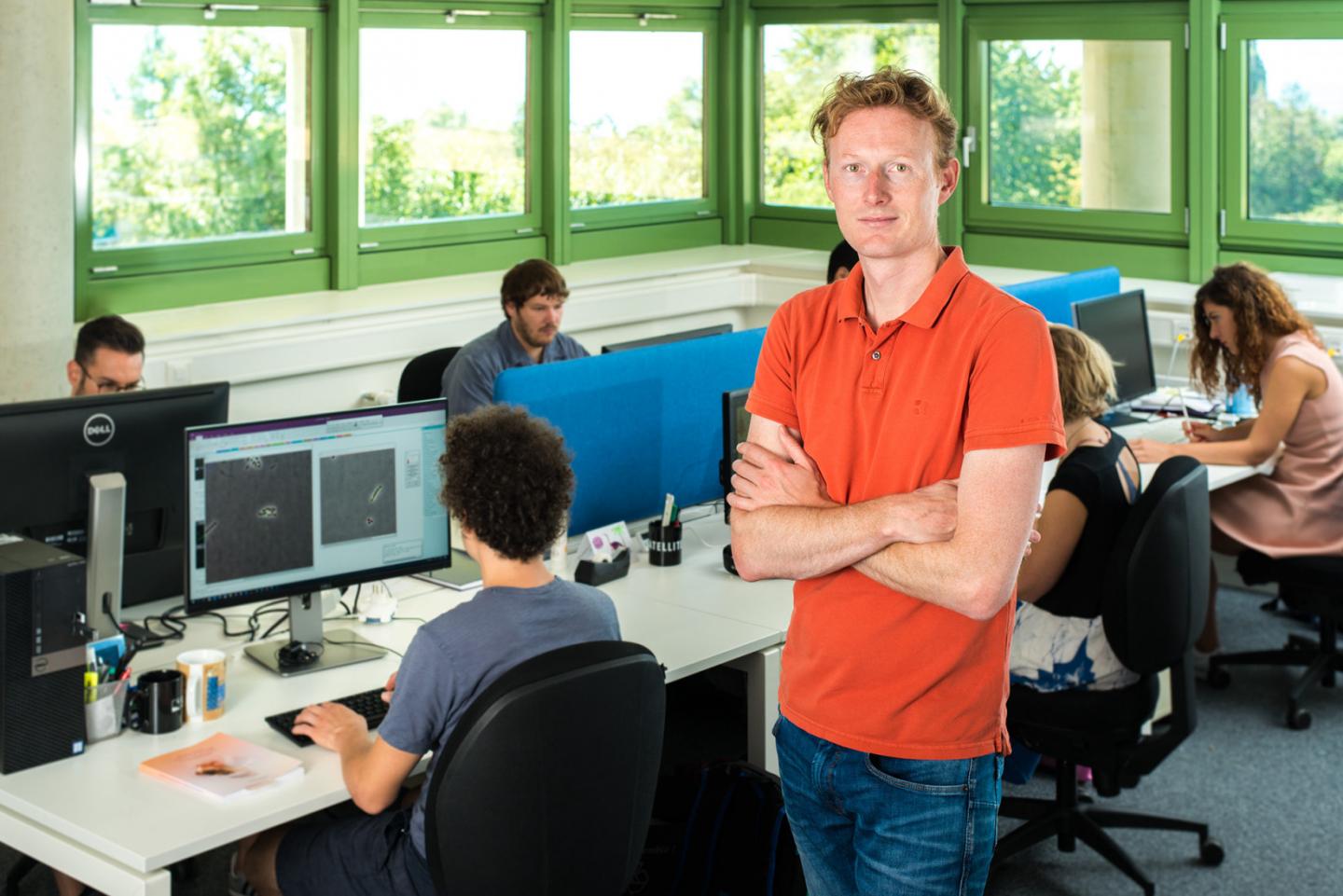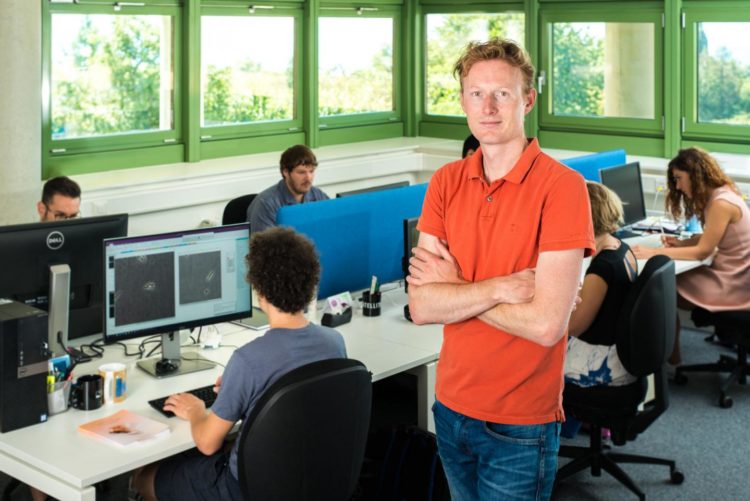
Credit: Veening lab
The spread of antibiotic resistance is partly due to the ability of bacteria to pick up DNA from their surroundings. A new study, which started at the University of Groningen, showed that drugs blocking this ability (which is called ‘competence’) in the bacterium Streptococcus pneumoniae can indeed stop the spread of resistance in mice. As competence is blocked without affecting cell growth, it will be difficult for the bacteria to evolve resistance to the blockade. The study was published online by the journal Cell Host & Microbe on 3 March.
The bacterium Streptococcus pneumoniae is often present in our nose or throat and is usually harmless. However, it can migrate to other parts of the body, causing severe diseases. The only way to treat these infections is with antibiotics, but with this treatment, acquisition of antibiotic resistance is a cause for concern. In order to pick up these resistance genes, a chain of events is needed that brings the bacteria in a state called ‘competence’. During competence, bacteria express all the machinery required to ‘catch’ and incorporate the resistance genes into their own genomes.
Growth stress
In a project that started at the University of Groningen in the Netherlands and was finished at the Swiss University of Lausanne, Arnau Domenech and colleagues figured out how to stop the cells from becoming competent. ‘We collaborated with scientists from Heidelberg, who developed a high-throughput assay to simultaneously test cells for competence and growth,’ says Domenech. In this assay, 1366 approved drugs were screened. It turned out that 46 of them blocked the induction of competence, without negatively affecting growth.
‘When cells are under growth stress, for instance in the presence of antibiotics, they try to find a solution and become resistant to these drugs,’ explains Domenech. ‘Importantly, we did not observe resistance to the drugs found here as they do not cause growth stress.’ The 46 drugs could be divided into two groups: drugs affecting ion homeostasis, and antipsychotics. Several candidates were selected for further exploration. ‘This showed that they all acted through the same mechanism,’ says Domenech. They disrupted the proton-motive force: the electrochemical gradient that moves protons across the bacterial membrane and powers various processes.
Resistance
‘The result is that the cells fail to secrete a peptide called CSP,’ explains Domenech. The CSP concentration outside the cells induces competence through a process called quorum sensing: if enough cells secrete CSP, the concentration will reach a threshold that activates competence genes.
Domenech: ‘In the lab, we observed that our competence-blocking drugs could prevent the transfer of antibiotic resistance genes to susceptible strains of Streptococcus pneumoniae and we obtained the same results in cultures of human lung epithelial cells.’ The drugs also reduced the transmission of bacterial resistance genes in a mouse model of infection.
Antibiotics
The concentrations blocking the induction of competence were lower than those inhibiting growth. However, they may still not be safe to treat patients, as human cells also rely on the proton-motive force for some vital functions. ‘Nevertheless, we discovered a general pathway that we can block to prevent the spread of antibiotic resistance,’ says Domenech. Future studies must show whether it is feasible to use this approach in humans. If that is the case, the finding could be a breakthrough: competence blockers are anti-evolution drugs, which could be given together with antibiotics. This combination would be a very powerful weapon in the fight against infections and could extend the lifespan of current antibiotics.
An explanimation of the study can be found on YouTube: https:/
###
Reference: Domenech A, Brochado AR, Sender V, Hentrich K, Henriques-Normark B, Typas A, Veening J-W. Proton-motive force disruptors block bacterial competence and horizontal gene transfer. Cell Host and Microbe 3 March 2020.
Simple science summary
Bacteria can become resistant to antibiotics by picking up resistance genes from their environment. Scientists tested a large number of known drugs for their ability to prevent bacteria from picking up foreign DNA. They found 46 candidates and discovered that they all acted through the same principle: disrupting a system that drives the secretion of a protein called CSP. In cultures of human lung cells and in mice, the drugs prevented the transfer of resistance genes to non-resistant bacteria.
Media Contact
Rene Fransen
[email protected]
Related Journal Article
http://dx.





